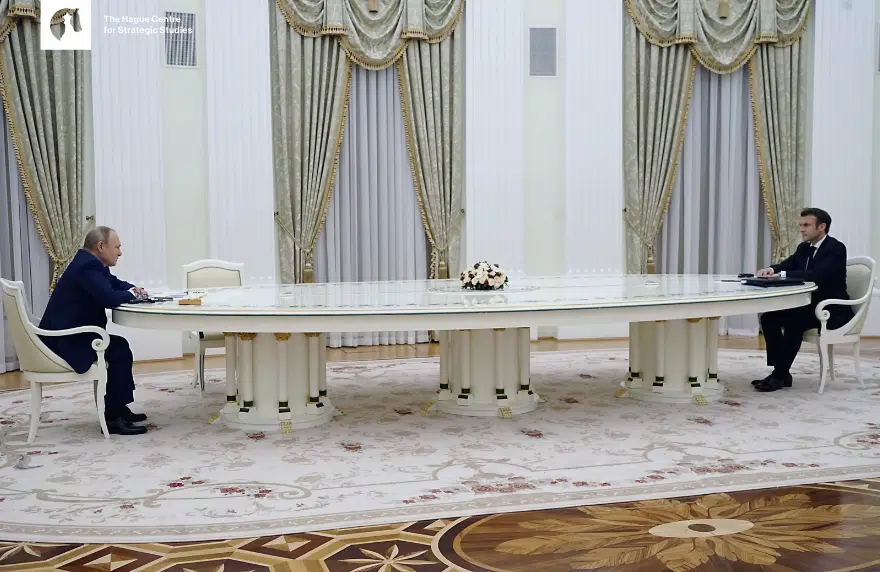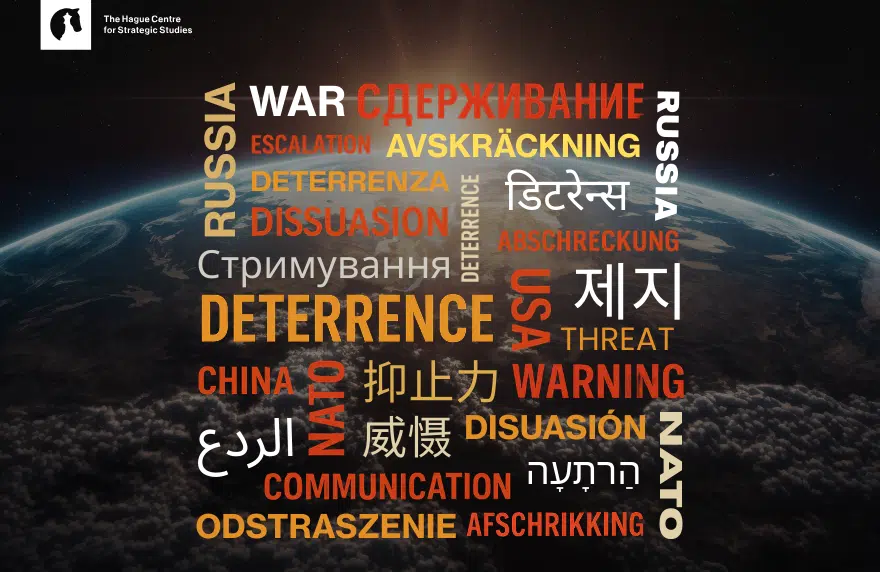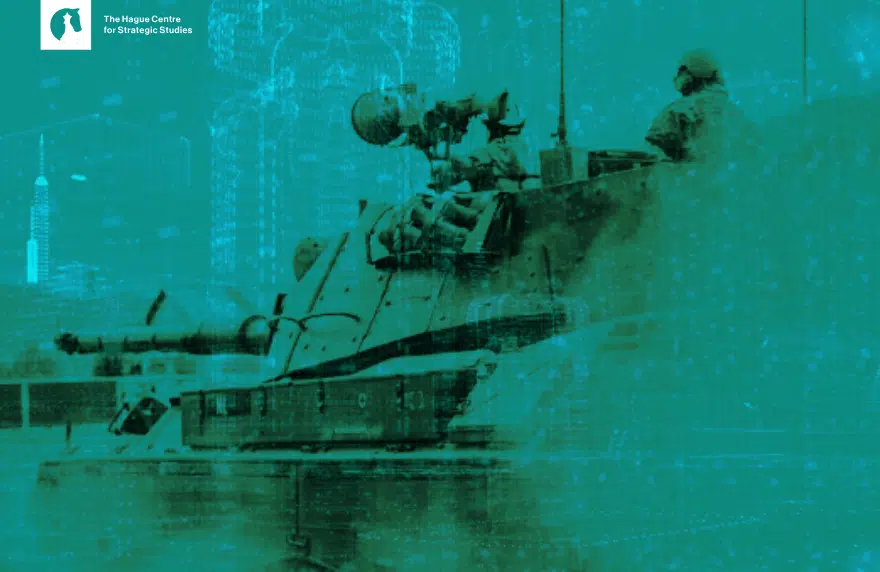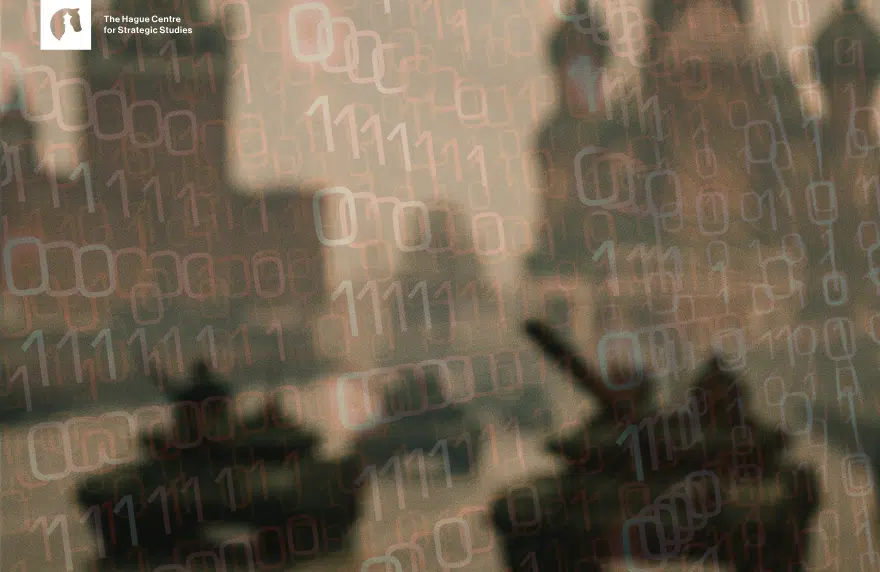Op 24 februari 2022 viel Rusland Oekraïne grootschalig binnen. Toch zagen veel Westerse landen deze aanval niet aankomen – ondanks maandenlange Russische troepenopbouw, gecommuniceerde belangen en bewezen bereidheid tot agressie. In het nieuwe HCSS-rapport Blinded by Bias onderzoeken Tim Sweijs, Thijs van Aken, Julie Ebrard, Philippe van Pappelendam en Anna Hoefnagels hoe deze waarschuwingssignalen genegeerd konden worden.
De centrale conclusie: Westerse beleidsmakers waren niet alleen slecht voorbereid, ze waren vooral verblind door een reeks psychologische en cognitieve biases.
Het rapport is gebaseerd op 44 diepte-interviews met hoge functionarissen uit Frankrijk, Duitsland, Nederland, het Verenigd Koninkrijk, de VS en het NAVO-hoofdkwartier, waaronder adviseurs van presidenten en premiers, gecombineerd met analyse van documenten, media en academische literatuur. De studie laat zien hoe dominante overtuigingen, aannames en groepsdynamiek het dreigingsbeeld van Rusland vertekenden – met grote gevolgen voor het beleid richting Oekraïne.
Hoewel Rusland overduidelijk zijn belangen, militaire capaciteiten én bereidheid tot geweld etaleerde – en dus voldeed aan alle klassieke kenmerken van een geloofwaardige dreiging – wisten veel Westerse regeringen zich simpelweg geen grootschalige oorlog op het Europese continent voor te stellen. Landen zoals het VK en de VS waren eerder overtuigd van de Russische intenties en handelden sneller. Andere landen, waaronder Nederland, Duitsland en Frankrijk, onderschatten de dreiging, zagen oorlog als irrationeel, of vreesden provocatie door militaire steun.
HCSS-hoofdonderzoeker Tim Sweijs concludeert: “Het hardnekkig vasthouden aan diplomatieke optimisme, economische verwevenheid en het geloof dat oorlog in Europa ondenkbaar was, heeft tijdig en krachtig optreden vertraagd. De les is dat structurele biases en verkeerde dreigingsinschattingen direct effect hebben op nationale veiligheid.”
De HCSS studie onderscheidt vier typen NAVO-landen op basis van hun dreigingsperceptie en steun aan Oekraïne:
- Doves: zagen geen existentiële dreiging en vertrouwden op diplomatie en sancties (o.a. Nederland, Duitsland, Frankrijk).
- Deers: erkenden de dreiging maar waren bang voor escalatie, en beperkten steun tot niet-militaire middelen.
- Buzzards: voorzagen een invasie, maar zagen die niet als existentiële dreiging, en gaven militaire steun (o.a. VK, VS).
- Wolves: zagen Rusland als existentiële dreiging en steunden Oekraïne met militaire middelen (o.a. Baltische staten, Polen).
De belangrijkste conclusie van de onderzoekers is dat deze verschillende houdingen diep geworteld zijn in een reeks psychologische valkuilen. Zeven biases springen eruit: van de ‘availability heuristic’ (onvermogen om oorlog voor te stellen omdat het buiten de recente ervaring ligt), tot ‘mirror imaging’ (de aanname dat Rusland rationeel zou handelen zoals Westerse landen dat zouden doen), en ‘self-deterrence’ (de angst dat militaire steun escalatie zou uitlokken).
Het rapport sluit af met twintig aanbevelingen voor beleidsmakers om deze biases te onderkennen en tegen te gaan, zoals bias-awareness-trainingen, het versterken van kritische tegenspraak binnen beleidsprocessen, en het ontwikkelen van operationele kaders om de denkwereld van tegenstanders beter te begrijpen.
Het rapport laat zien hoe cruciaal het is om openlijker inlichtingen te delen, publieke steun voor veiligheidsmaatregelen op te bouwen, en bereid te zijn hard power in te zetten wanneer de situatie dat vereist.
Blinded by Bias biedt daarmee niet alleen een verklaring voor het Westerse falen vóór februari 2022, maar ook lessen voor hoe we in de toekomst beter kunnen anticiperen op dreigingen. Want in een snel veranderende geopolitieke wereldorde laat de volgende crisis niet lang op zich wachten.
Download het hele rapport nu!








